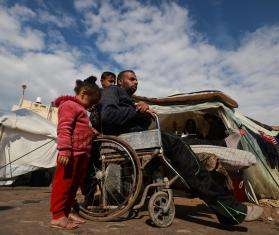On October 18 Doctors Without Borders/Médecins Sans Frontières (MSF) began working with local authorities to tackle an outbreak of pneumonic plague in the port city of Tamatave on the east coast of Madagascar.
MSF’s international medical personnel are supporting staff from the Malagasy Ministry of Health to provide treatment to patients currently hospitalized in the plague triage and treatment center. This specialized facility was built earlier this week outside the city’s hospital by international partners, including MSF.
"The plague is understandably a scary disease, but quick, hands-on action can drastically lower the number of fatalities and bring the outbreak to an end," says Luca Fontana, MSF water and sanitation specialist. "Pneumonic plague is treatable and patients have a 100 percent chance of making a full recovery when treatment is started in time. Moreover, people at risk of infection can take prophylaxis treatments that will prevent them from falling ill. This is why MSF responded with concrete action to the Malagasy authorities’ call for support in Tamatave."
In addition to treating the sick, MSF staff are helping local authorities to improve patient triage systems to quickly identify and isolate plague patients, as well as coordinating the ambulance system in Tamatave city. MSF water and sanitation specialists, alongside local teams, are also involved in hygiene and disinfection protocols in the hospital and the community to mitigate the risk of the plague spreading further.
The port city of Tamatave, also known as Toamasina, is home to about 300,000 people and currently has one of the highest concentrations of cases of pneumonic plague in Madagascar, with 261 cases and 10 fatalities since the beginning of the outbreak. While the bubonic plague is spread through infected fleas from common mammals, pneumonic plague is transmitted from human to human. Madagascar records cases of bubonic plague every year in its highland plateaus, where the disease is carried by rats, but Tamatave city has no natural animal vector present and no regular cases of plague in recent years.
According to official data, 1,032 cases of plague, including 695 cases of pneumonic plague and 89 deaths, were recorded in Madagascar from August 1 to October 17.




